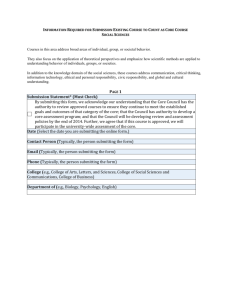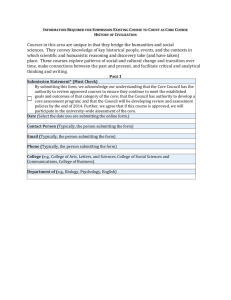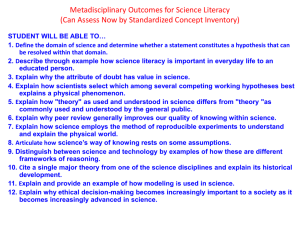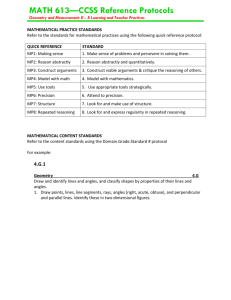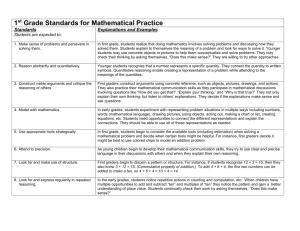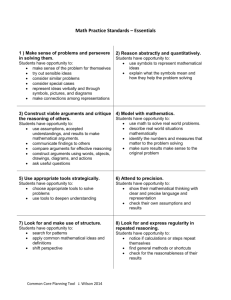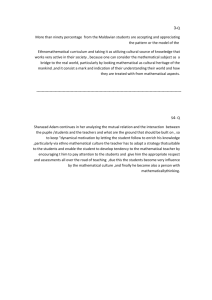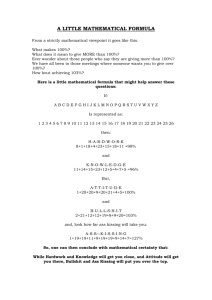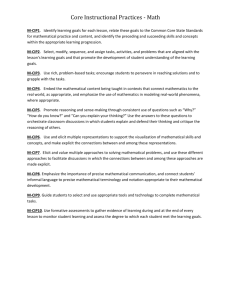Information Required for Submission Existing Course to Count as
advertisement
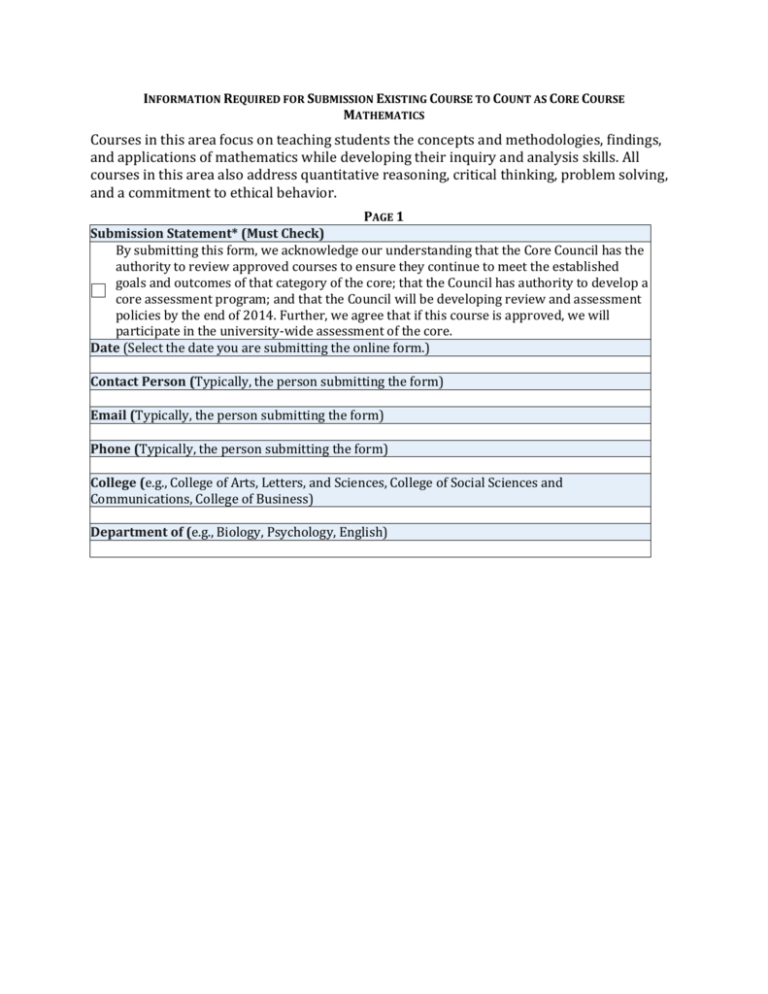
INFORMATION REQUIRED FOR SUBMISSION EXISTING COURSE TO COUNT AS CORE COURSE MATHEMATICS Courses in this area focus on teaching students the concepts and methodologies, findings, and applications of mathematics while developing their inquiry and analysis skills. All courses in this area also address quantitative reasoning, critical thinking, problem solving, and a commitment to ethical behavior. PAGE 1 Submission Statement* (Must Check) By submitting this form, we acknowledge our understanding that the Core Council has the authority to review approved courses to ensure they continue to meet the established goals and outcomes of that category of the core; that the Council has authority to develop a core assessment program; and that the Council will be developing review and assessment policies by the end of 2014. Further, we agree that if this course is approved, we will participate in the university-wide assessment of the core. Date (Select the date you are submitting the online form.) Contact Person (Typically, the person submitting the form) Email (Typically, the person submitting the form) Phone (Typically, the person submitting the form) College (e.g., College of Arts, Letters, and Sciences, College of Social Sciences and Communications, College of Business) Department of (e.g., Biology, Psychology, English) PAGE 2 Course ID (e.g., ENG 2337, CRJU 2300, PSYC 2300) Course Title (e.g., World Literature, Introduction to Criminal Justice, Psychology and the Human Experience) Existing Catalog Description (In this section, please provide the course catalog description.) How will your department ensure a level of consistency among sections of this course? Who will be responsible for this? (Please provide a narrative on how your department will ensure a level of consistency among various sections of this course. Be sure to include how this course will be consistent among different faculty members, adjuncts, student teachers, and various sections that may be offered online. Also provide who will be responsible for this.) PAGE 3 Knowledge 1 – Concepts, methodologies, findings, and applications of natural sciences, engineering and technology. Learning Outcomes Students will . . . 1. understand mathematical relationships among quantities; 2. understand fundamental mathematical/algebraic operations; Learning Objectives- Knowledge 1.1 Assignments- Knowledge 1.1 Explanation- Knowledge 1.1 Learning Objectives- Knowledge 1.2 Assignments- Knowledge 1.2 Explanation- Knowledge 1.2 PAGE 4 Skills 1 – Communication Learning Outcomes Students will . . . 1. use basic mathematical formulas and terminology; 2. explain orally and in writing the mathematical “reasonableness” of a statement that is presented as being implied by data; 3. communicate about math precisely orally and in writing; Learning Objectives-Skills 1.1 Assignments- Skills 1.1 Explanation- Skills 1.1 Learning Objectives-Skills 1.2 Assignments- Skills 1.2 Explanation- Skills 1.2 Learning Objectives-Skills 1.3 Assignments- Skills 1.3 Explanation- Skills 1.3 PAGE 5 Skills 2 – Critical thinking, Quantitative Reasoning, and Solving Problems Individually and Collaboratively Learning Outcomes Students will . . . 1. interpret, analyze, and identify appropriate applied math models, data and graphs; 2. develop abstract and quantitative reasoning ability. Learning Objectives-Skills 2.1 Assignments-Skills 2.1 Explanation-Skills 2.1 Learning Objectives-Skills 2.2 Assignments-Skills 2.2 Explanation-Skills 2.2 PAGE 6 Skills 3 – Information Technology Learning Outcomes Students will . . . 1. make appropriate decisions regarding the use of technology when solving problems, recognizing both the insight to be gained and the limitation; 2. use information resources like the internet reflectively for inquiry, exploration, and communication; Learning Objectives-Skills 3.1 Assignments-Skills 3.1 Explanation-Skills 3.1 Learning Objectives-Skills 3.2 Assignments-Skills 3.2 Explanation-Skills 3.2 PAGE 7 Values 1– Personal Responsibility and Ethical Behavior Learning Outcomes Students will . . . 1. take responsibility for completing assignments in an honest and ethical manner, working on their own when required and acknowledging resources when used; 2. use information resources like the internet reflectively for inquiry, exploration, and communication; Learning Objectives-Values 1.1 Assignments-Values 1.1 Explanation-Values 1.1 Learning Objectives-Values 1.2 Assignments-Values 1.2 Explanation-Values 1.2 PAGE 8 Values 3 – Global and Cultural Understanding Learning Outcomes Students will . . . 1. analyze “real world” implications and develop mathematical models that aid in the understanding of current global issues. Learning Objectives-Values 3.1 Assignments-Values 3.1 Explanation-Values 3.1 Additional Comments
